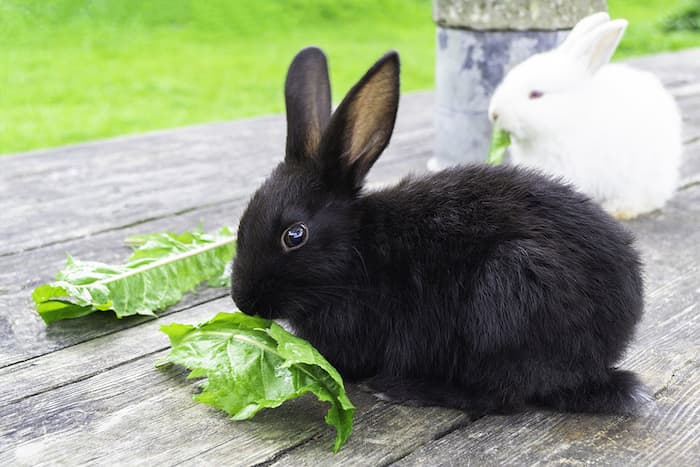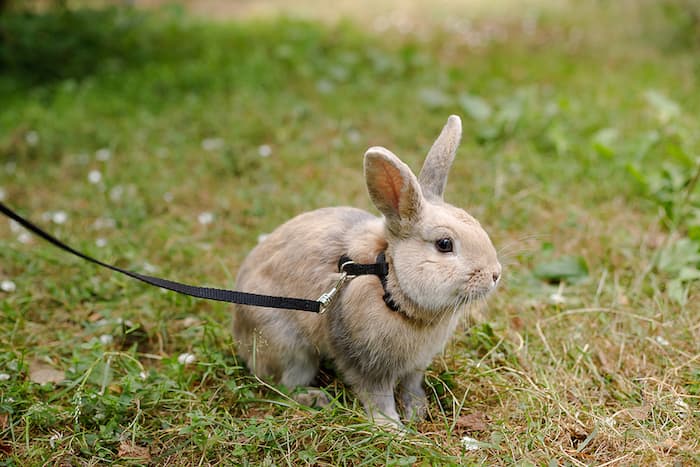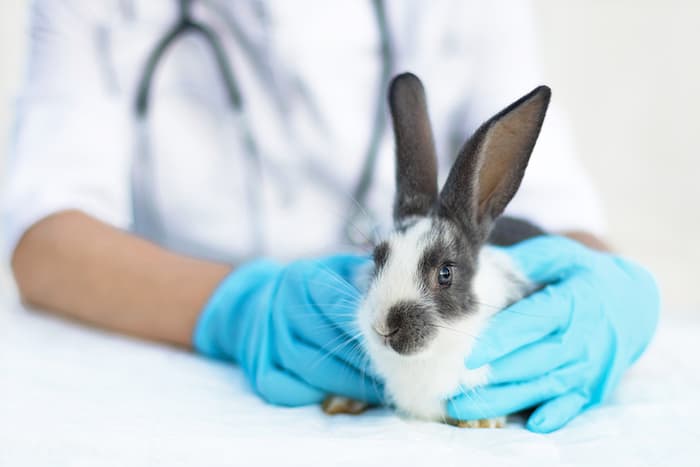Rabbits may seem like a low-maintenance pet that can fit perfectly into any home, but there’s more to think about than just how cute they look. Before bringing a rabbit into your family, it is important to understand what goes into caring for them and whether or not you are adequately prepared for the task at hand. From costs and lifestyle changes to food choices and cage sizes, there are several considerations that must be made before taking on such an exciting responsibility. Keep reading as we outline some of the main points you should take into account when deciding if a rabbit is right for you!

Decide if you are able to commit to providing daily care for your rabbit
Bringing a rabbit into your life can be a wonderful addition, but it is important to consider if you can fully commit to their daily care needs. Rabbits require daily feedings of fresh vegetables and hay, as well as the opportunity to exercise. It’s important to understand that rabbits are social creatures and their mental and physical health depends on regular interaction and stimulation. Before making the decision to become a rabbit owner, take the time to evaluate your lifestyle and schedule to ensure that you will be able to provide the necessary care and attention for your furry friend. With proper care, a rabbit can bring joy and companionship to your life for many years to come. You will need to clean rabbit poop and fur regularly, groom them on a regular basis and keep an eye out for any health concerns. If you are not able or willing to commit to this level of care, then a rabbit may not be the right pet for you.

Consider the size and space of your home
If you’re considering adopting a bunny, it’s important to take a close look at the size and space in your home. While rabbits may be small, they still need plenty of room to move around and stretch their legs. A cramped living arrangement may make your furry friend feel stressed and unhappy, leading to potential health issues down the line. As a responsible pet owner, it’s your job to make sure your rabbit has enough space and freedom to thrive. So before you bring home a fluffy companion, make sure you’ve got a cozy and spacious home to offer. It’s also important to pay attention to the materials used in your rabbit’s cage. Avoid cages with small bars, as these can be hard on their feet, and opt for wire or plastic cages instead.
Research the different breeds of rabbits
If you’re thinking about getting a rabbit, it’s important to choose a breed that will match your lifestyle and personality. There are many different types of rabbits to consider, each with their unique traits and characteristics. For example, some breeds, like the Dutch or Mini Rex, are energetic and playful, making them a good fit for active families. Others, like the Lop or the Lionhead, are known for their gentle and calm nature, making them a better choice for those who prefer a more laid-back companion. By doing your research and carefully assessing your needs, you’ll be able to find the perfect rabbit to bring into your home and heart.
Understand the costs associated with owning a rabbit
When considering adding a rabbit to your family, it’s important to understand the costs associated with owning one. While they may be small in size, rabbits still require plenty of care and attention to thrive. This includes purchasing food, grooming supplies, and important items such as a cage and bedding. Additionally, veterinary visits for checkups and any necessary treatments can also add up over time. By understanding these costs upfront, you can better prepare for the financial responsibilities of owning a rabbit and ensure that you can provide them with the best care possible.
Make sure you have an appropriate enclosure for the rabbit
Rabbits are lively and active creatures that love to explore and hop around in their environment. It’s important to provide them with an appropriate enclosure that allows them to do so safely and comfortably. A spacious pen or hutch with plenty of room to move around is ideal. It’s also important to ensure that the enclosure is secure and predator-proof to protect your furry friend. A suitable enclosure not only keeps your rabbit physically healthy but also provides them with mental stimulation and improves their overall well-being. So, make sure your rabbit’s home is a place where they can stretch their legs, explore and play to their heart’s content.

Prepare for routine trips to the vet for check-ups and vaccinations
As with any pet, regular visits to the veterinarian are a must for rabbits. Veterinary check-ups and vaccinations are essential for keeping your furry friend healthy and happy. During these visits, your vet will be able to monitor their health, provide advice on nutrition and identify as well as treat any potential health issues early on. Additionally, spaying or neutering your bunny can also help reduce aggressive behavior and keep its hormones in check. So, it’s important to plan for routine trips to the vet and ensure that you’re providing your rabbit with the best care possible. A vet can also help advise you on any other questions you may have about rabbit care and ownership. They can also point you to resources and support networks that may be helpful.
Owning a rabbit can be incredibly fulfilling, and it’s clear that understanding the necessary information beforehand is key. Deciding to adopt or purchase a bunny requires a significant financial and time commitment, but when these needs are met, your pet rabbit will be a beloved part of your family. In addition to checking out the different breeds and selecting one that would best suit your lifestyle and home, think about how much space you have available for them in their enclosure. With the right supplies, devotion to daily care and maintenance, veterinarian check-ups, and plenty of love for your special bunny companion, you can look forward to watching them hop around in glee each day!
Related Reading
